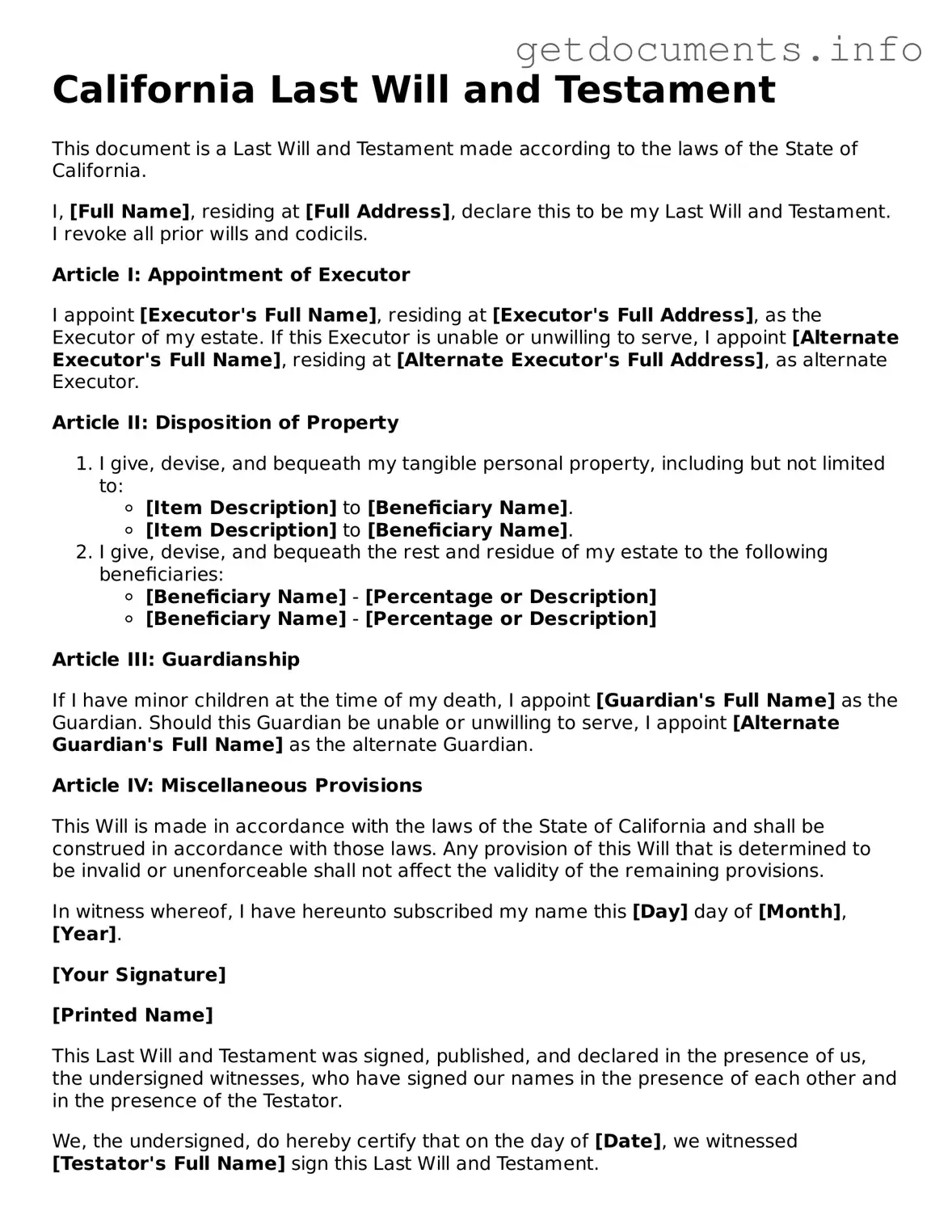Free Last Will and Testament Template for California
A California Last Will and Testament form is a legal document that outlines how a person's assets and affairs will be managed after their passing. This form allows individuals to specify their wishes regarding the distribution of their property, guardianship of dependents, and other important matters. By taking the time to complete this form, you can ensure that your intentions are clearly communicated and legally recognized.
Ready to take the next step in securing your legacy? Fill out the form by clicking the button below.
Access Last Will and Testament Editor

Free Last Will and Testament Template for California
Access Last Will and Testament Editor
Got places to be? Complete the form fast
Fill out Last Will and Testament online and avoid printing or scanning.
Access Last Will and Testament Editor
or
⇩ PDF File
